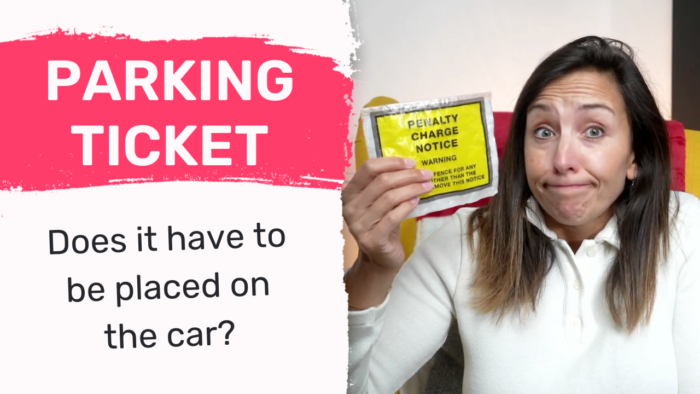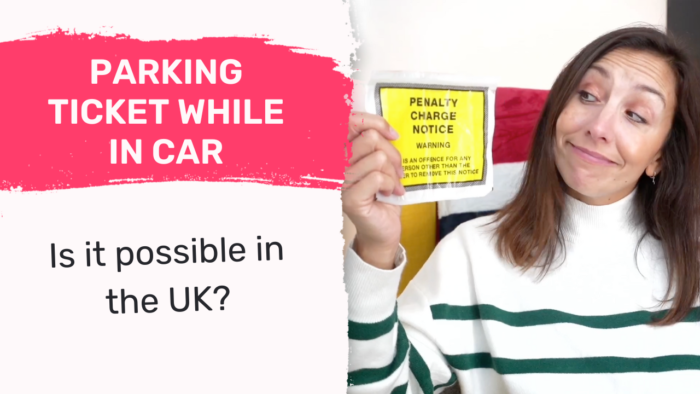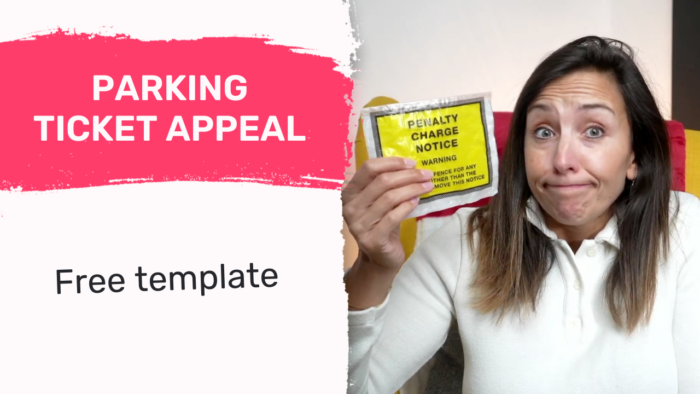Does a Parking Ticket Have to be Placed on the Car?

Have you found a parking ticket waiting for you, but it was not placed on your car? Each month, over 32,000 people come to this site looking for guidance on tickets and fines. We understand it can be concerning and confusing. But don’t worry, we’re here to help.
In this guide, we’ll explain:
- The difference between private and council parking tickets.
- How to appeal a ticket and the chance of winning.
- Why you should pay a parking ticket within 14 days.
- What happens if you don’t pay your parking ticket.
- The rules about where a parking ticket should be placed.
We know how it feels to get a parking ticket, and we’re here to support you. Let’s dive in to find out what you can do about your parking ticket.
Most Ticket Appeals Succeed
In some circumstances, you might have a legitimate reason not to pay your fine.
It’s a bit sneaky, but the last time I needed legal advice, I paid £5 for a trial to chat with an online solicitor called JustAnswer.
Not only did I save £50 on solicitor feeds, I also won my case and didn’t have to pay my £271 fine.
Chat below to get started with JustAnswer
*According to Martin Lewis, 56% of people who try to appeal their ticket are successful and get the charge overturned, so it’s well worth a try.
So, does a parking ticket have to be placed on your car?
No. A parking ticket doesn’t need to be placed on your car’s windscreen. Moreover, when a parking infringement on private land or a parking offence on public land is recorded on CCTV, the fine comes through the post!
Plus, you could be handed a parking ticket by a traffic warden!
When an infringement is recorded on CCTV or ANPR, the issuer gets a registered keeper’s information from the DVLA. Accredited parking operators can access the database to retrieve the details, as can an authority!
There’s one advantage to getting a parking ticket through the post. You get 21 days to appeal or pay a fine issued by an authority and still benefit from a discount. It’s a week longer than if you got the penalty charge on your car!
Should you appeal a parking ticket or not?
You can challenge a penalty charge notice when you think it’s not fair. The same applies if you get a parking charge notice on private land. But you must have grounds to contest the fine!
Always check the time limits on appealing the parking ticket and make sure you file yours in good time. If you miss a deadline, that’s it. You’ve lost the right to appeal against the parking ticket.
Are there any good excuses to get out of paying a parking ticket?
Yes. Some acceptable excuses could get you out of paying a parking ticket. This includes:
- Payment machines were out of order, and there was no other way for you to pay
- An emergency prevented you from returning to your car
- The parking ticket took too long to reach you by post
- You entered one incorrect digit of your car’s registration by mistake
- You parked correctly/legally
- Your car broke down, and you had to wait for a recovery truck to arrive
- Details on the parking ticket are not yours
- The parking ticket was given before the 10-minute grace period had expired
» TAKE ACTION NOW: Get legal support from JustAnswer
Is there a grace period for car parking?
Yes. Private operators and authorities like the council should allow you a 10-minute grace period before issuing a parking ticket.
Should you pay a parking ticket within 14 days?
You could pay a parking ticket within two weeks, and paying early does have some benefits. First, you pay a discounted fine whether the parking ticket was issued on public or private land.
Second, you won’t have to waste time arguing why the parking ticket should be cancelled.
But, and there is a but.
You should only pay a parking ticket when you’re happy it’s yours and that you parked illegally or broke an operator’s rules!
Successful Appeal Case Study
Situation
| Initial Fine | £100 |
| Additional Fees | £171 |
| Total Fine | £271 |
The Appeal Process
Scott used JustAnswer, online legal service to enhance his appeal. The trial of this cost him just £5.
| Total Fine | £271 |
| Cost of legal advice | £5 |
JustAnswer helped Scott craft the best appeal possible and he was able to win his case.
Scott’s fine was cancelled and he only paid £5 for the legal help.
In partnership with Just Answer.
What happens when you don’t pay for a parking ticket?
Things can get expensive when you ignore or don’t pay for a parking ticket. You have 28 days to pay, but you’re encouraged to pay earlier to benefit from a reduced fine. Unfortunately, not everyone can afford to pay a parking ticket within 14 days, so they miss out!
There’s also a double whammy when you don’t pay a penalty charge notice within 28 days. The authority issues a Charge Certificate, and the fine increases by 50%! You have a further 14 days to pay the larger fine! If you don’t, a court order is issued, which earns you a CCJ on your credit record.
Things are different when you get a parking ticket on private land. It’s because parking charge notices are not immediately enforceable. Instead, the operator or landowner must win a court case against you to get paid!
In short, car park management companies cannot legally demand payment from you without a court order, that is!
Hire a Parking Solicitor for less than a coffee.

If you’re thinking about appealing your parking ticket then getting some professional advice is a good idea.
Getting the support of a Solicitor can make your appeal much more likely to win.
For a £5 trial, Solicitors from JustAnswer can look at your case and help you create an airtight appeal.
In partnership with Just Answer.

